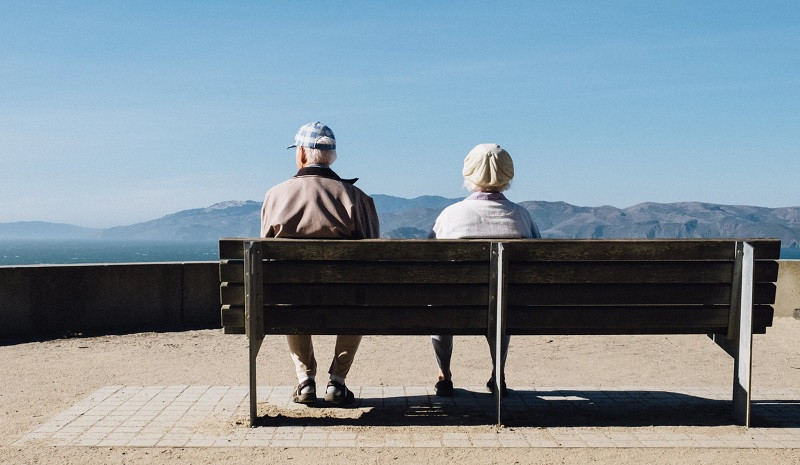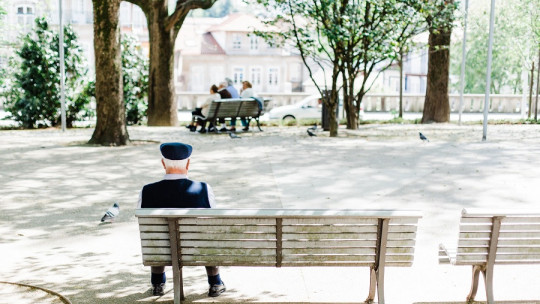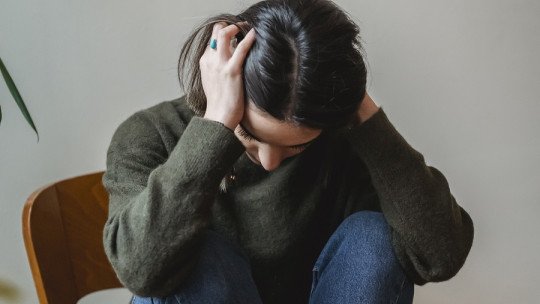Although loneliness does not have to be something negative in itself, feeling alone is. This feeling can have many negative consequences on our mental health.
We are all susceptible to feeling alone at some point, and that this loneliness can harm us, but of course the group that is most vulnerable to the effects of chronic loneliness are the elderly.
Given how detrimental it is in that group, below we will see the 3 main signs that an older person feels lonely what consequences it can have on your health and what we can do to reverse it.
Suffering from loneliness during old age
Everyone can be alone at some point in their life. These episodes of loneliness do not have to be a bad thing, in fact many people take advantage of their loneliness by seeing it as a moment of reflection and self-knowledge, a period in which they rest from how hectic human relationships can become. Loneliness, in itself, does not have to be something negative.
However, feeling alone can become a heavy burden. People need the support of others, to feel that there are people who care about us, who are there so that if one day something happens to us, they will move to do everything possible to prevent us from suffering danger. People who unfortunately do not have this because have ended up socially isolated, trapped in chronic loneliness many run the risk of suffering from physical and psychological ailments of all kinds.
As time goes by, people who are alone feel increasingly sad, unmotivated and even useless, feeling that no one cares. This is especially worrying in the case of older people, especially because they are the ones most at risk of falling into absolute loneliness, given that it is at these ages that Mobility problems begin to arise that prevent you from going out into the outside world in addition to the fact that you can experience the loss of friends and spouses while your children have long since become independent.
What is chronic loneliness?
To detect the signs that tell us that an older person feels lonely, we must first understand what we mean by chronic loneliness. This type of loneliness is what occurs when feelings of loneliness and social isolation extend over a long period of time. The person has constant feelings of feeling alone, distant or isolated from society, but does not have the tools or facilities to reconnect on a social level Added to this are feelings of low self-esteem, feelings of rejection and fear of other people.
Chronic loneliness can catch even the most sociable person off guard. Although being an extrovert can serve as a protective factor, it is worth saying that situational factors can also cause a person to disconnect from society, such as having an illness that prevents mobility, having lost important relationships or simply no longer Have ways to establish contact with family members.
The main signs that an older person feels lonely
What causes an elderly person to find themselves in a situation of extreme loneliness can be very varied, ranging from their own personality traits to the loss of significant relationships, either because they have become estranged or because they have died. Likewise, we can highlight three main signs that indicate that an older person feels alone and is at risk of becoming trapped in chronic loneliness.
1. Lack of the habit of cultivating friendships
One of the main reasons why older people may feel lonely and isolated is the loss of friends. With age it is inevitable that friendships will be lost, especially because the end must come to all of us. However, If the person does nothing to try to maintain or expand their network of “contacts” with friends, isolation will gain ground in a very harmful way
As family members, friends or significant others for that older person, we can make an effort and try to make them discover new friendships, signing up for activities with other people their age and, thus, sharing time with people with the same tastes, thus avoiding isolation.
2. Lack of self-esteem
Every person who has managed to reach old age must have had an interesting life. It is logical to think that there will be more interesting life trajectories than others, but without a doubt All of them have anecdotes, stories and great feats to tell
Taking this into account, it is worrying when an older person tells us that their life has not been interesting, that it has not been of great importance and that they do not have anything to tell or feel any pride in past achievements, no matter how inconsequential they may be. appear.
If an older person tells us that they feel bad, that they feel that they have wasted their life, that they are worthless, that no one loves them, and comments of this type, it is quite easy to see that they feel alone and have a serious self-esteem problem. She needs to revalue herself by relating to other people.
For this reason It is important to highlight the good things you have achieved throughout your life keep it active, show that we care and that we take it into account, that without it our life would be missing something.

3. Little willingness to adapt
One of the most widespread stereotypes about old age is that older people are reluctant to new things. This is partly true, but not to the point that the person is unable to relate to the world nor can he tolerate doing anything new.
If the elderly person shows little willingness to adapt, this is a worrying sign. It may mean that has reached such a serious point of loneliness that, although he suffers from it, he is not able to tolerate new situations although these are fun and bring you interaction with other people.
To remedy this problem, what we can do is try to introduce new experiences into that person’s life, gradually and gently, so that they once again value what is new, everything that the world out there can offer them.
How harmful can chronic loneliness be?
Chronic loneliness is very harmful to anyone’s health, but more especially in older people. Prolonged feelings of loneliness can have a very negative effect on health, both physically and mentally, and this can be understood taking into account the important weight that hormones exert.
It has been seen that Chronic loneliness increases levels of cortisol in the body, a hormone known to be involved in stress If secreted in large quantities, in addition to being the endocrinological basis of stress, it produces various processes in the body, including inflammation, weight gain, insulin resistance and many other organic problems. You could say that loneliness done poorly makes the body sick.
But there are many other negative effects of chronic loneliness, effects that, although they can also manifest themselves without the person feeling alone or being really alone, If you have a low mood, it can get worse
All these problems associated with chronic loneliness are related to a lower life expectancy which is why it is extremely necessary to know if a person feels very alone and, if so, to find a solution.
Chronic loneliness and neurodegeneration
Much has been studied about chronic loneliness and old age, especially its link with neurodegeneration. Feeling alone has a negative impact on the brain and in old age it is the vital moment that can do the most damage as it is the period in which they appear. the first symptoms of neurodegenerative diseases in many cases, especially dementias such as Alzheimer’s disease
Although dementia does not have to occur in all cases, it is true that people who feel lonely have a striking reduction in their cognitive skills. Executive functions such as concentration, decision making and problem solving are aspects that can be damaged in older people who live alone. All of this makes them more prone to accidents, which can have fatal consequences if no one helps them if they suffer serious damage.









